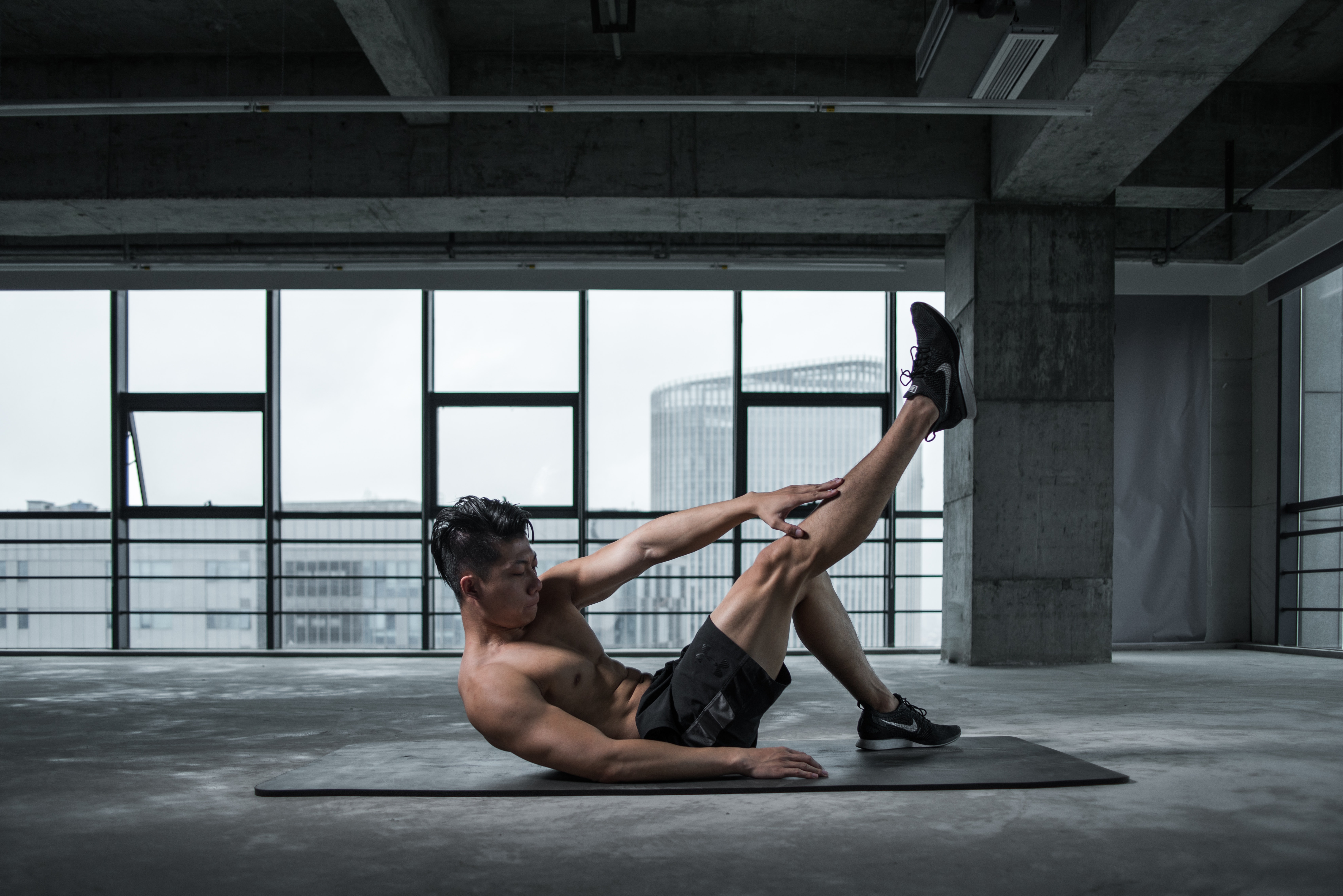
This year, winter training is more essential than ever if you want to keep in shape. Unfortunately, this year, maintaining your motivation is probably harder than ever too. Even in a normal year, it’s easy to lose enthusiasm as the days get shorter, darker and colder, and 2020 is by no means normal.
If you want to maintain your fitness and keep your weight down during the winter months, it’s important to keep the momentum going. This year the goal is clear: being in the best possible shape when summer comes around and we can all hit the beach or indulge in our favourite activities.
Sure, there's a lack of outdoor races going on this autumn and winter, but you can still compete as a runner or cyclist on Zwift, and there is a huge range of online workout apps to help you keep trim. One thing is for sure: if you stay committed to the cause and follow a dedicated training plan the hard work will pay dividends.
Here are seven tips to get through the colder months and ready to hit the spring racing season at full strength.
- Winter weight loss – more top tips
- The best Zwift setup for every budget
- How to get fit fast at home with indoor cycling

Signing up for a spring/summer race will keep you motivated
1. Set a goal
Sign up for an event that starts in spring or early summer. This will keep you motivated on those dark and gloomy days and give you the motivation to keep going, even when times get tough.
Another way of guaranteeing progress is by acquiring the services of a coach or training program, both of which will not only help provide some structure to your training but also encourage you to keep going.
- Best running watch: some of them have adaptive virtual coach features built-in
- Best Fitbit
- Best fitness tracker
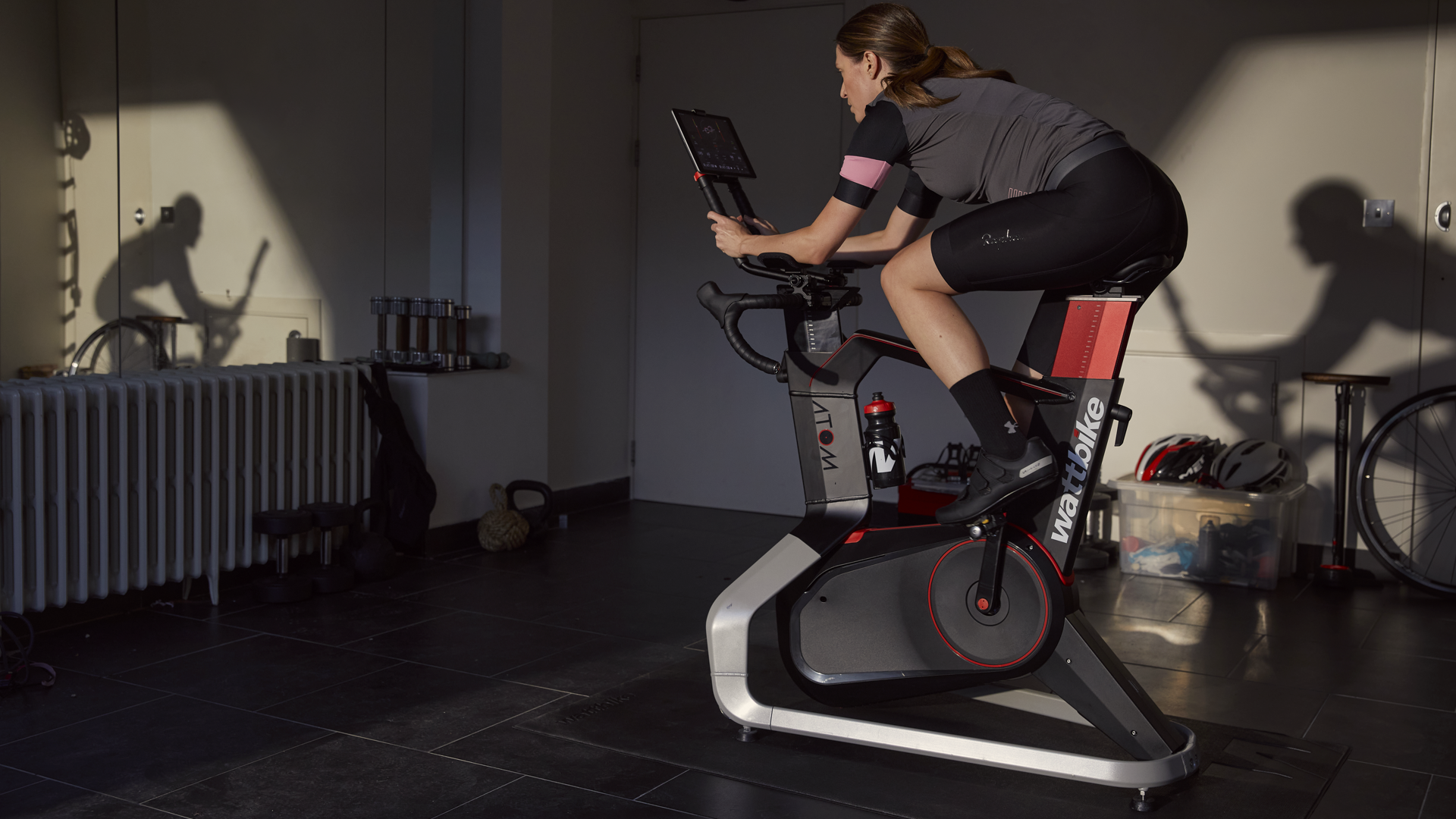
The next generation Wattbike Atom is excellent for bad weather training days
2. Incorporate strength training
Gym work and strength training has proven to positively influence on-the-bike performance. Gyms may be out of the picture for many of us, but the winter months are still a perfect time to get in some of the best dumbbells and start doing strength work.
Get all the latest news, reviews, deals and buying guides on gorgeous tech, home and active products from the T3 experts
Strength training has numerous benefits such as enhancing connective tissue strength, preventing injury, improving cycling economy and aerobic fitness, preserving muscle mass (important in older age-group athletes) and increasing bone mineral density.
Core strength is also extremely important for cycling performance. Workouts should include light weights and torque/strength work – direct-drive trainers or a smart trainer such as the next generation Wattbike Atom are the best solution.
Mix up your sessions by including single-leg riding drills, workouts should comprise 5 x 2min intervals per leg with 5min recovery or spinning between each set. Low-cadence drills are just as effective – these should constitute 4 x 4min sets at 50rpm with 4min easy riding between each effort.
- Best push-pull workout
- Best full body workout
- 10,000 swings kettlebell workout
- Mike Tyson bodyweight workout
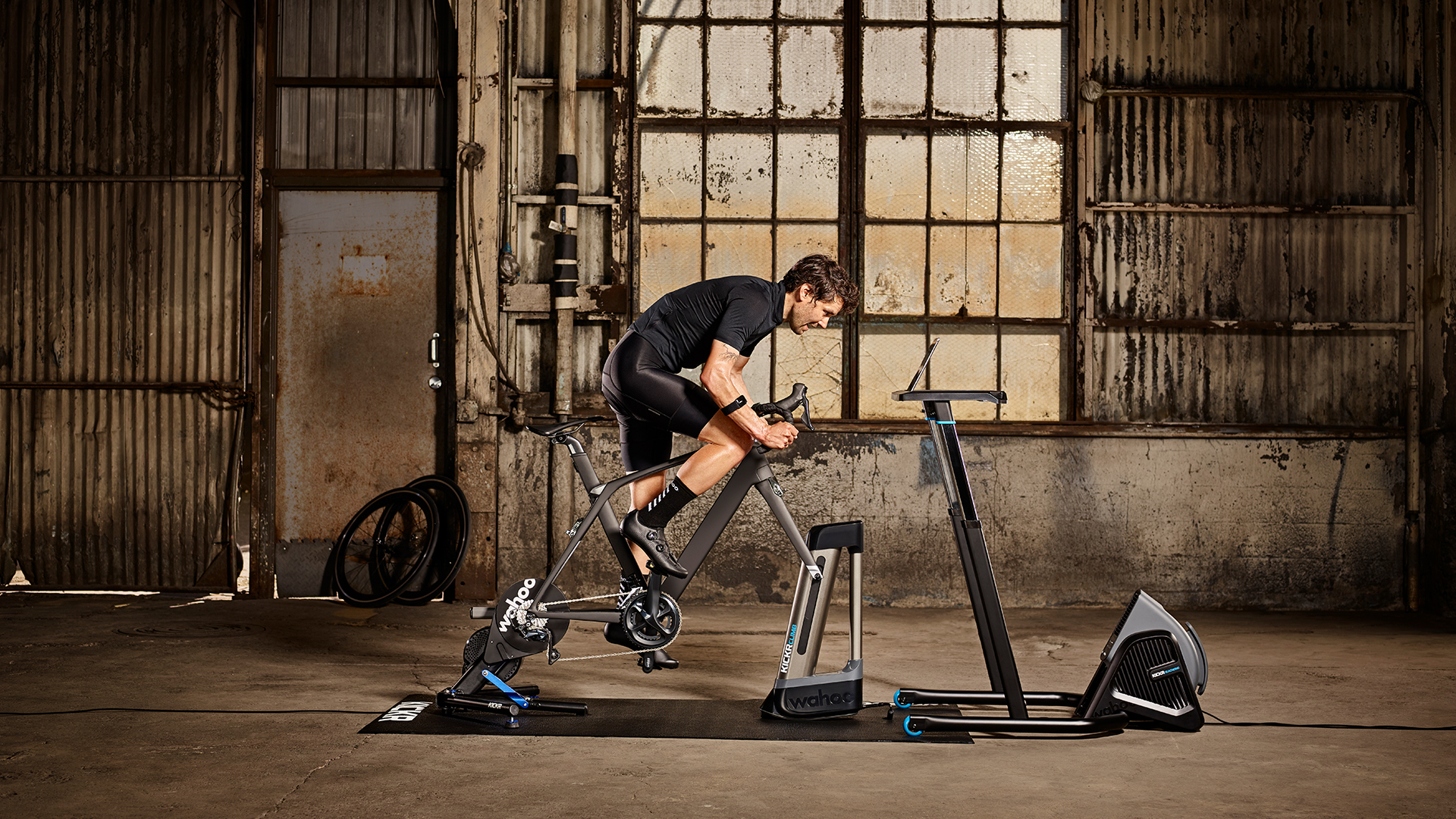
Turbo trainers have changed the way cyclist can train indoors
3. Invest in a good turbo trainer
Turbo trainers have changed the way cyclists see indoor training. Smart trainers have made training more entertaining with third-party apps such as Zwift providing a virtual environments to compete and ride against riders from all around the world.
The single biggest benefit of using an indoor trainer is time efficiency. We all struggle to make time to train, especially when it comes to juggling work and family obligations. An indoor session allows you to fit more quality work into a shorter time frame, allowing you to maximise and tailor your workouts around your schedule.
Remember to use a fan when riding indoors as it assists with convective heat loss and helps mitigate reduced intensities associated with indoor training.
- Best turbo trainers
- Best road bike: to mount on the turbo trainer
- Best exercise bike

Zwift will make indoor cycling sessions fun and engaging
4. Sign up for Zwift or TrainerRoad
Online platforms such as Zwift, TrainerRoad and Rouvy have revolutionised the indoor training game. Not only have they made indoor training more enjoyable and entertaining, these applications have opened up a new world of training allowing athletes to ride in a virtual world with their mates, against other riders or simply just complete a structured workout in an immersive setting.
Most of these applications offer structured plans and workouts which are a boon if you don’t already have a regime to follow.
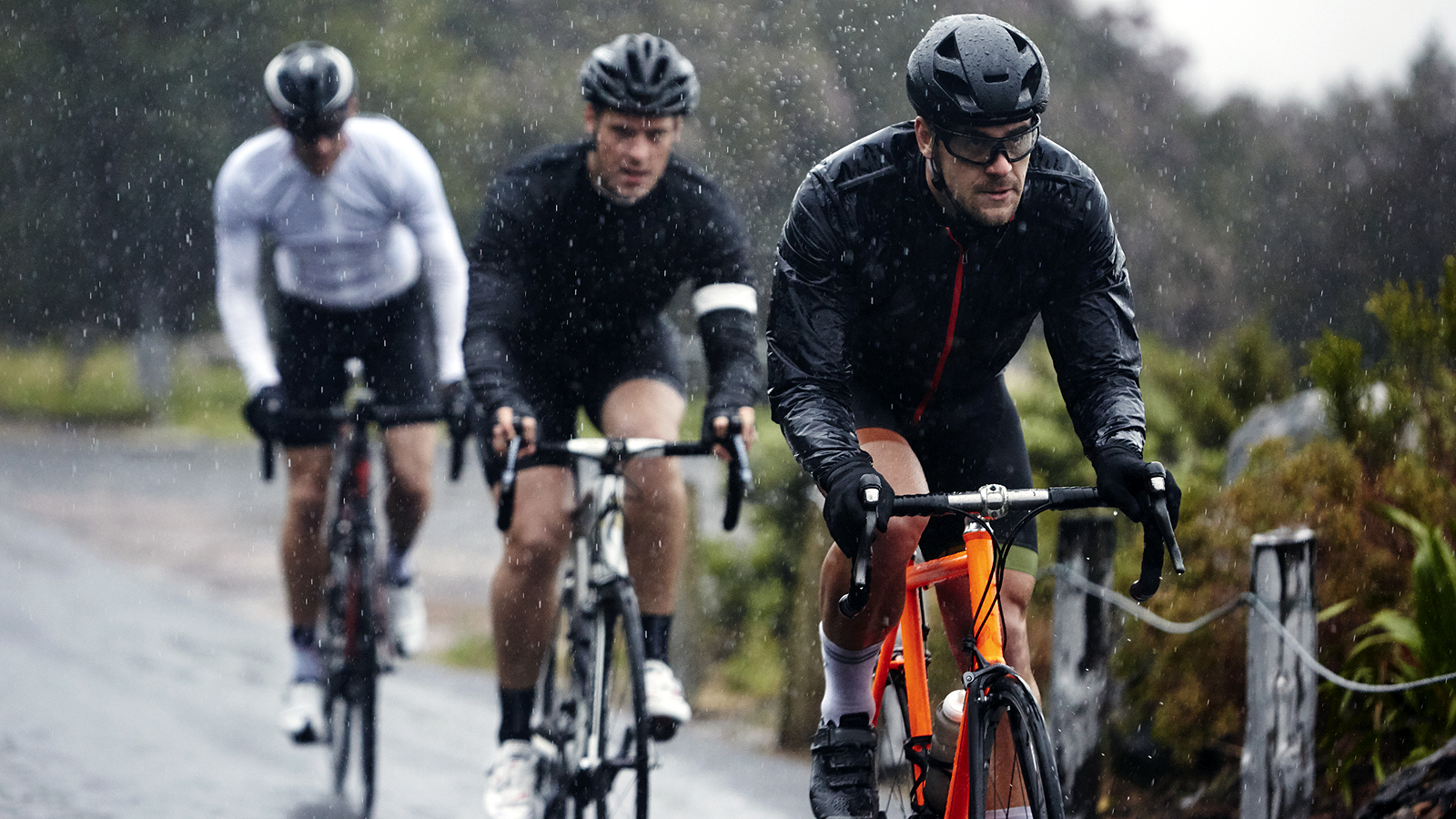
Don't try to rack up all the miles you can, leave time for recovery too
5. Quality over quantity
A common misconception is that cyclists need to rack up endless miles during the off season. This rhetoric is often referred to as junk miles as there is no scientific evidence that backs up this archaic notion. Rather focus on putting in a smaller amount of quality sessions than a large amount of tempo mileage or sweet-spot training.
Try follow the 80/20 rule during this period, where 80 per cent of your riding comprises very easy sessions, while the balance is made up of hard, high-intensity interval training or HIIT (during this phase the hard sessions can be torque/strength work).
These sessions are all about discipline. It’s often easier to do these sessions alone as riding with mates can often become races. Also remember the importance of rest and that sleep constitutes around 80 per cent of recovery.

Avoid processed food and try to keep a balanced diet
6. Eat well
It’s pretty easy to pack on a couple of pounds during the winter months, but try maintain a healthy balanced diet during this time. Of course there's no harm treating yourself every now and then, but avoid overindulging in sugar-rich, high-carb meals.
An easy way to ensure you stay lean is by keeping track of your total calorific intake – something like one of the best Fitbits or a best running watch can be a good way to monitor calories burned – and consumed, if you're willing to input meals as you go along. After a hard training ride aim for 20g of protein and 80g of carbs to assist with your recovery.
- Best protein powder
- Best protein bar: tasty protein snacks and bars to help build muscle fast
- Best jerky

A few trail-running sessions can keep your muscles on their toes
7. Mix things up
Running is an effective aerobic workout that may compliment your cycling performance. While it's a very time-effective workout, it can also become a bit tedious - try mixing up your routine by including a few trail-running sessions on some of your cycling routes.
If you’re not a regular runner it’s also important that you limit these sessions to no more than 30-45 minutes, twice a week. Failure to do so may result in acute or overuse injuries that may set you back and hamper any progress you’ve already made.
Other cross-training disciplines that may be of interest are swimming, cross-country skiing and indoor rowing - all of which are very good alternatives that will help keep the physiological system firing and boost your aerobic fitness.
• This article is part of a series on fitness, supported by Wattbike
-
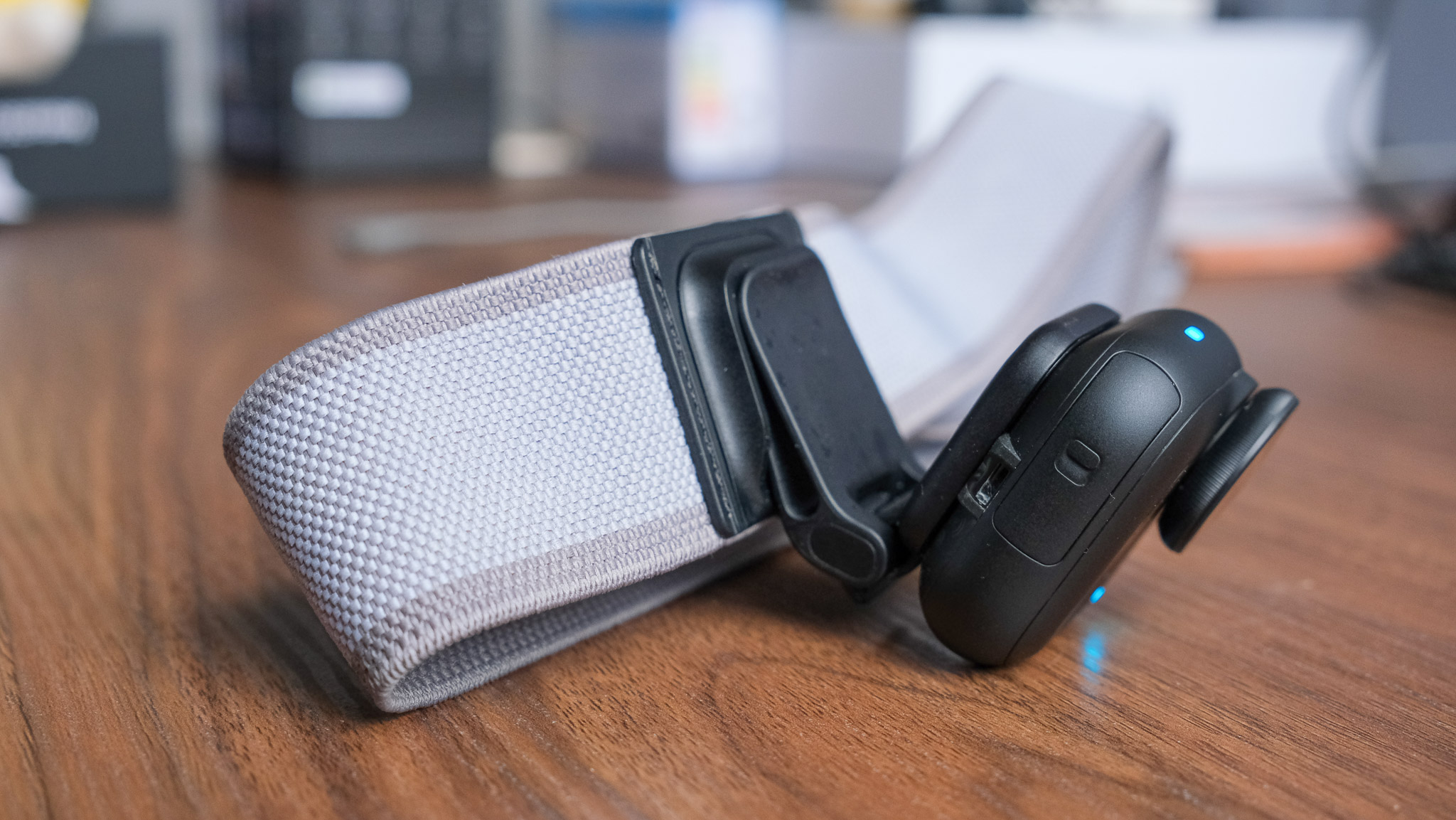 Insta360’s CEO may have accidentally revealed two upcoming cameras in one shot
Insta360’s CEO may have accidentally revealed two upcoming cameras in one shotA Weibo post from Insta360 boss JK Liu has sparked chatter online about a new white camera and a blurred “pocket” device hiding in the background
-
 Acer Swift 14 AI review: Matte display will be your best mate
Acer Swift 14 AI review: Matte display will be your best mateLong battery life, a matte display and great price point – what's not to like?